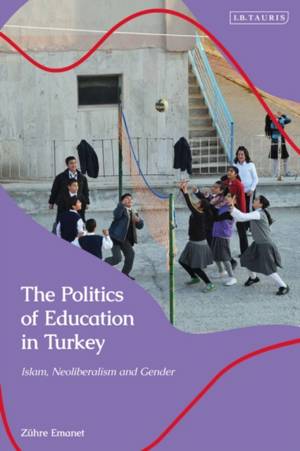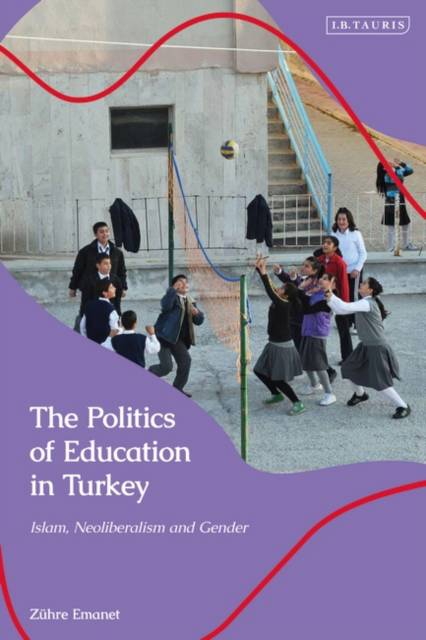
- Retrait gratuit dans votre magasin Club
- 7.000.000 titres dans notre catalogue
- Payer en toute sécurité
- Toujours un magasin près de chez vous
- Retrait gratuit dans votre magasin Club
- 7.000.0000 titres dans notre catalogue
- Payer en toute sécurité
- Toujours un magasin près de chez vous
195,45 €
+ 390 points
Description
Control over education has been a keenly contested area since the Justice and Development Party (AKP) came to power in Turkey. Central to this contest has been the question of whose values would be passed down to future generations, with the inculcation of gender segregation in primary schools a key marker in ongoing cultural battles over Turkey's secularist founding principles and the growing dominance of Islamist political movements.
This book offers an in-depth analysis of gender inequality in action in the Turkish schooling system by examining changes in education provision and culture in the years since 2012. Based on two school ethnographies conducted in an AKP-dominated district of Istanbul where the author worked as a teacher and researcher, it examines neoliberal education policies and their co-option by the AKP and other Islamist movements to promote their own agendas, while also considering the effects of the struggle between rival Islamist groups. Grounding its theoretical approach with empirical evidence of ideology in action, it provides an important analysis of the way in which boys and girls are socialized in Turkey's public schooling system.Spécifications
Parties prenantes
- Auteur(s) :
- Editeur:
Contenu
- Nombre de pages :
- 224
- Langue:
- Anglais
- Collection :
Caractéristiques
- EAN:
- 9780755636693
- Date de parution :
- 13-07-23
- Format:
- Livre relié
- Format numérique:
- Genaaid
- Dimensions :
- 156 mm x 234 mm
- Poids :
- 485 g

Les avis
Nous publions uniquement les avis qui respectent les conditions requises. Consultez nos conditions pour les avis.






